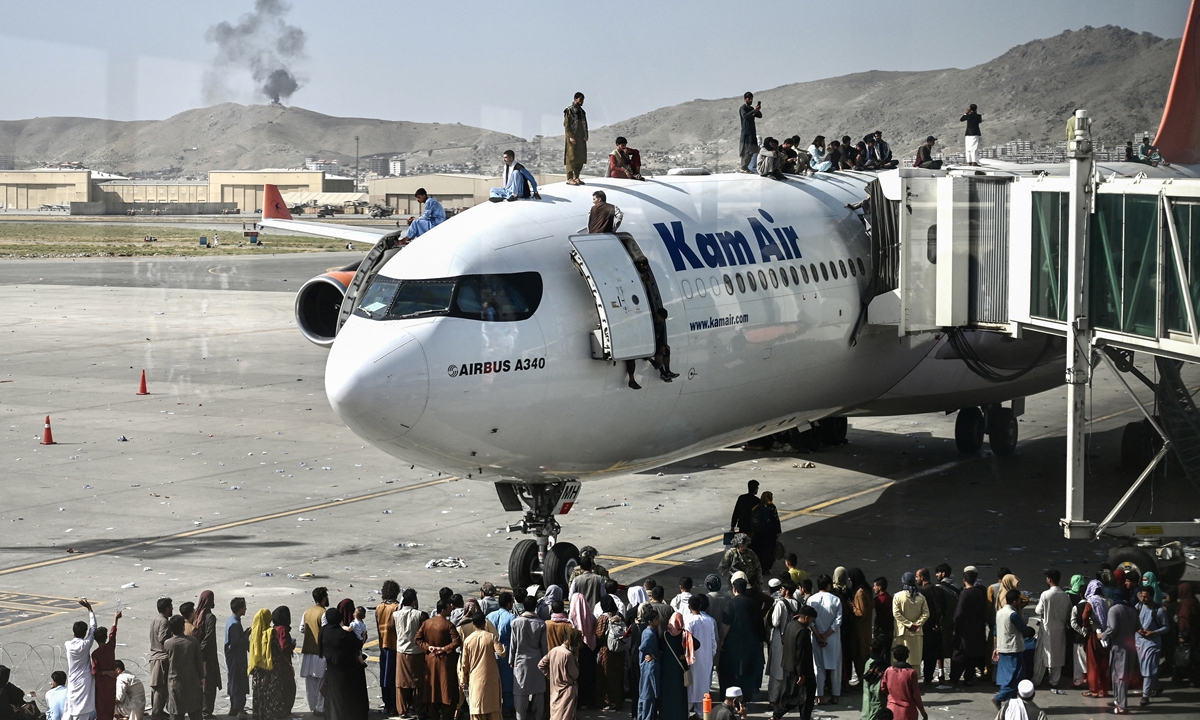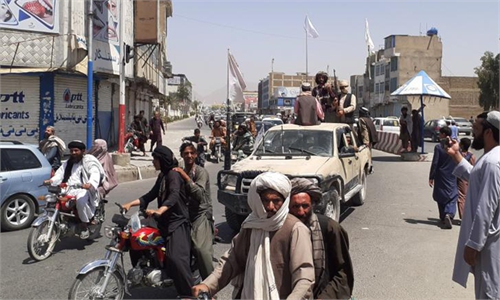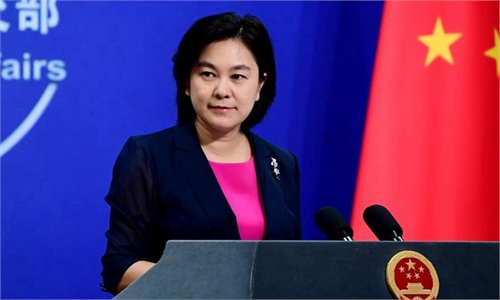Chinese firms eye resumption of projects in Afghanistan amid power shift
Utilities, mining sector could be part of mutually beneficial cooperation

Afghan people climb atop a plane as they wait at the Kabul airport on Monday, after a stunningly swift end to Afghanistan's 20-year war. Photo: AFP
As Afghanistan is going through a major power shift with the Afghan Taliban taking power, Chinese companies and businesses in the country said they are hoping to resume major cooperation projects that have been stalled for years due to instability and security concerns, once the situation stabilizes.
While much uncertainty remains, given the fluid situation in Afghanistan, there are huge opportunities for mutually beneficial cooperation between the two countries, especially in sectors such as utilities and mining, if the country under the Taliban's leadership pursues peace and development after years of war, Chinese business representatives and experts noted.
While some Chinese companies are involved in several major projects in Afghanistan, including the Aynak Copper Mine project, which is the second-largest copper mine in the world, many have been stalled or seen slow progress due to political instability in the country. With a major political shift, some believe that there could be a chance for those projects to resume.
"We would consider reopening it after the situation is stabilized, and international recognition -- including the Chinese government's recognition of the Taliban regime -- takes place," a source at China Metallurgical Group Corp (MCC Group), which is involved in the project, told the Global Times on Tuesday.
MCC Group won the right to mine its deposits for 30 years in November 2007, and the contract was signed with the Afghan government in May 2008. But after many years, the project, which is about 19 miles (30.58 kilometer) from the capital of Kabul, has yet to start operation due to safety issues, several sources told the Global Times.
Chinese companies have also been involved in some infrastructure projects in Afghanistan. As of 2020, Chinese enterprises had contracts for projects worth $110 million in Afghanistan, a year-on-year increase of 158.7 percent.
However, because of social instability, several large projects in the country have been suspended, even though they were crucial for local development, Yu Minghui, director of the China Arab Economic and Trade Promotion Committee, who has participated in many of the projects, told the Global Times on Tuesday.
A major Chinese project in Afghanistan is the contract to develop oil fields Faryab and Sar-i-pul. Petrochina won the bid for $400 million in 2011 and signed a 25-year deal to drill in the field, but the project has been stalled, Yu said.
Another major sector of cooperation between China and Afghanistan is power generation, given the severe shortage of electricity that has affected daily life and development in the country, according to Yu, who has lived and worked in Afghanistan for 20 years.
"If Chinese technology can be used, costs will be cut and electricity supply can be increased by more than 10 percent," Yu said, noting that Afghan officials have asked Chinese companies to participate in the country's power generation sector.
In May, a group of Chinese firms was set to invest $400 million into a coal-fired electricity generation project, according to an official statement at the time. With an installed capacity of 300 megawatts, the plant will increase the country's power generation capacity by nearly 50 percent and significantly alleviate the electricity shortage, according to media reports.
However, the project is still being finalized, and many Chinese workers have already left the country due to recent events, a person familiar with the matter told the Global Times on Monday.
As the US is leaving after fighting a war in Afghanistan for years, and there is a major power shift in the country, projects could resume and more win-win cooperation between China and Afghanistan could be launched, if the new Afghan government pursues peace and development, Chinese experts said.
If Afghanistan enters an era of peace, there will be new opportunities for Chinese companies, "but first and foremost is whether the political situation in the country can be stabilized after the Taliban takes power, which means whether the Afghan Taliban can establish an inclusive and open government," Liu Zongyi, the secretary-general of the Research Center for China-South Asia Cooperation at the Shanghai Institutes for International Studies, told the Global Times.
Afghanistan has long depended on international aid, but to address its pressing problems, including high unemployment for the past 20 years, peace and development are extremely important, and Chinese investments could be of great value in that process, Yu said.
The Taliban held an open attitude toward cooperation with China, even before it entered Kabul.
During a meeting with Chinese State Councilor and Foreign Minister Wang Yi in North China's Tianjin on July 28, Taliban political commission representative Mullah Abdul Ghani Baradar said that it would create a suitable investment environment in Afghanistan and he hoped that China would get more involved in bringing peace to Afghanistan and play a bigger role in the country's future economic development.



